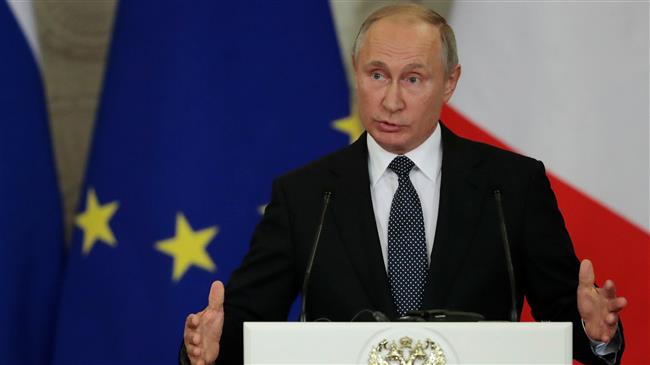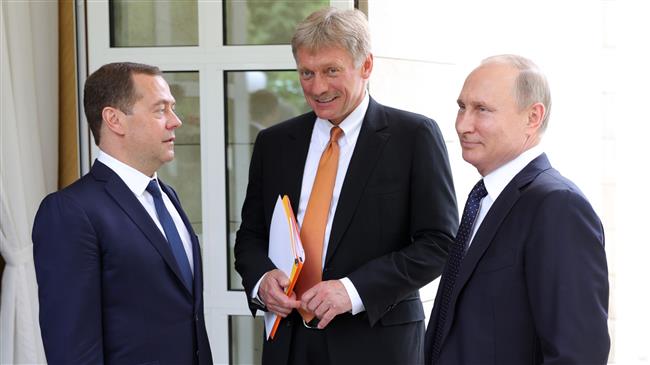US withdrawal from INF reflects American empire’s decline: Analyst
United States withdrawal from the 1987 Intermediate-Range Nuclear Forces Treaty (INF) with Russia reflects the decline of the American empire, says an analyst.
“I think the real reason for this is that the United States sees both China and Russia rising as global powers to compete with the United States both economically, if not necessarily militarily, and there has been a significant decline of the US empire in the last decade or so … I think that this is another move by the US empire to try to prop itself up in the face of an impending collapse,” Jason Unruhe told Press TV in an interview on Thursday.
“I think that the United States sees that they have a bit of advantage thus far in nuclear weapons technology and they realize that if they withdraw from this agreement now they can maintain the lead over other countries. I think this definitely shows that the United States is becoming desperate in the situation because there is no other rational explanation why they would simply just suddenly pull out of this agreement,” he added.
US President Donald Trump announced on October 20 that Washington would withdraw from the INF, which was signed towards the end of Cold War in 1987 by then President Ronald Reagan and Soviet leader Mikhail Gorbachev.
The treaty -- seen as a milestone in ending the Cold War arms race between the two superpowers -- banned ground-launch nuclear missiles with ranges from 500 kilometers to 5,500 kilometers and led to the elimination of nearly 2,700 short- and medium-range missiles.
Experts warn that leaving the agreement could provoke a dangerous arms race across Europe, akin to the one that was unfolding during 1980, but was ended by the INF.
VIDEO | Yemeni forces repel US-British attack, down F-18 Jet
Iran’s capabilities vast; enemy’s ‘maximum pressure’ policies all failed miserably: Senior official
Iran’s economy grew 2.7% y/y in Sep quarter: CBI
VIDEO | Freelancers in Gaza strive to stay online amid genocide
Mikati demands Israel's withdrawal from south Lebanon
Yemeni army strikes Israeli military sites with drones
‘Clock ticking’: UNRWA slams unjustifiable killing of children in Gaza
BP to be sued in Britain for supplying oil to Israel















 This makes it easy to access the Press TV website
This makes it easy to access the Press TV website